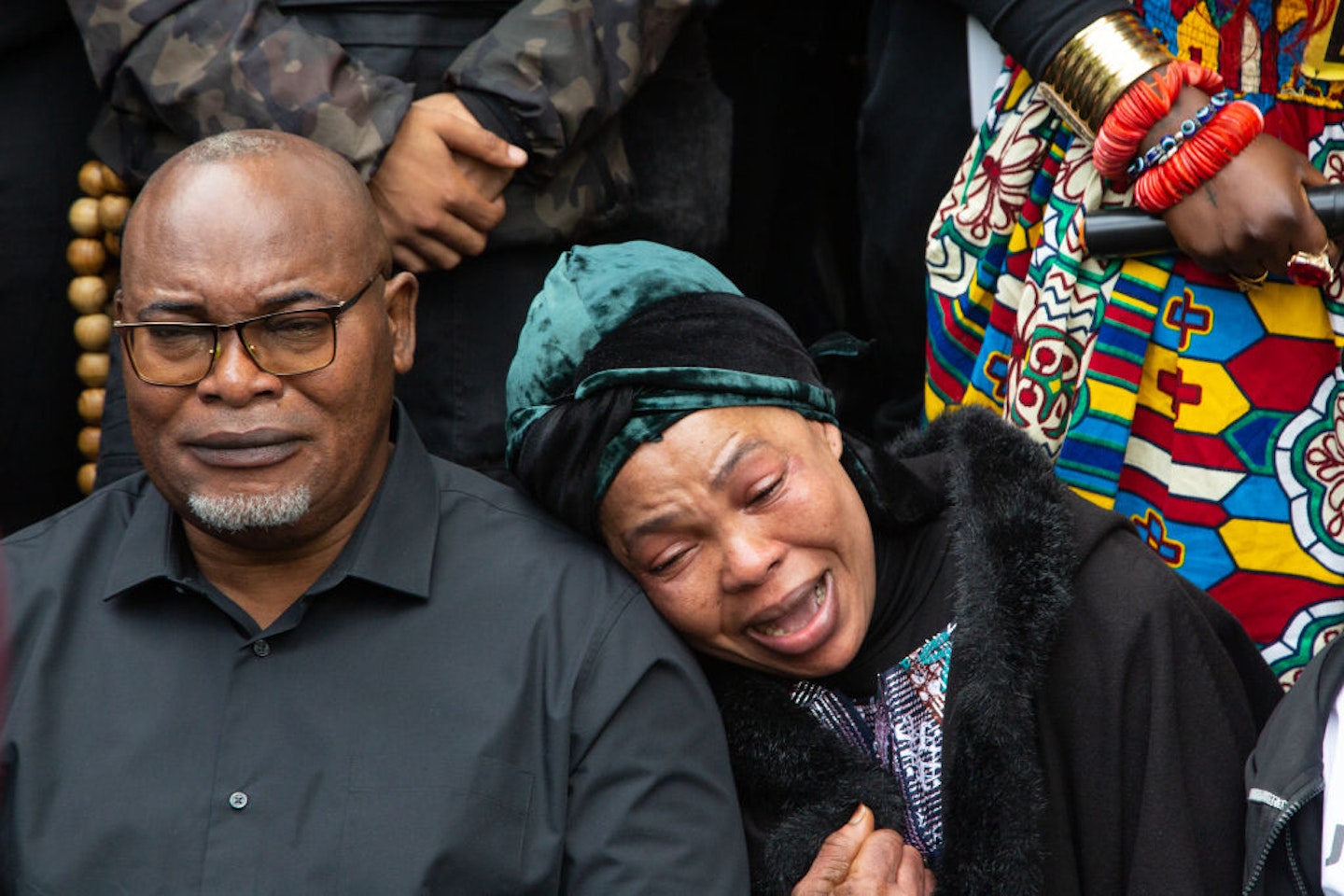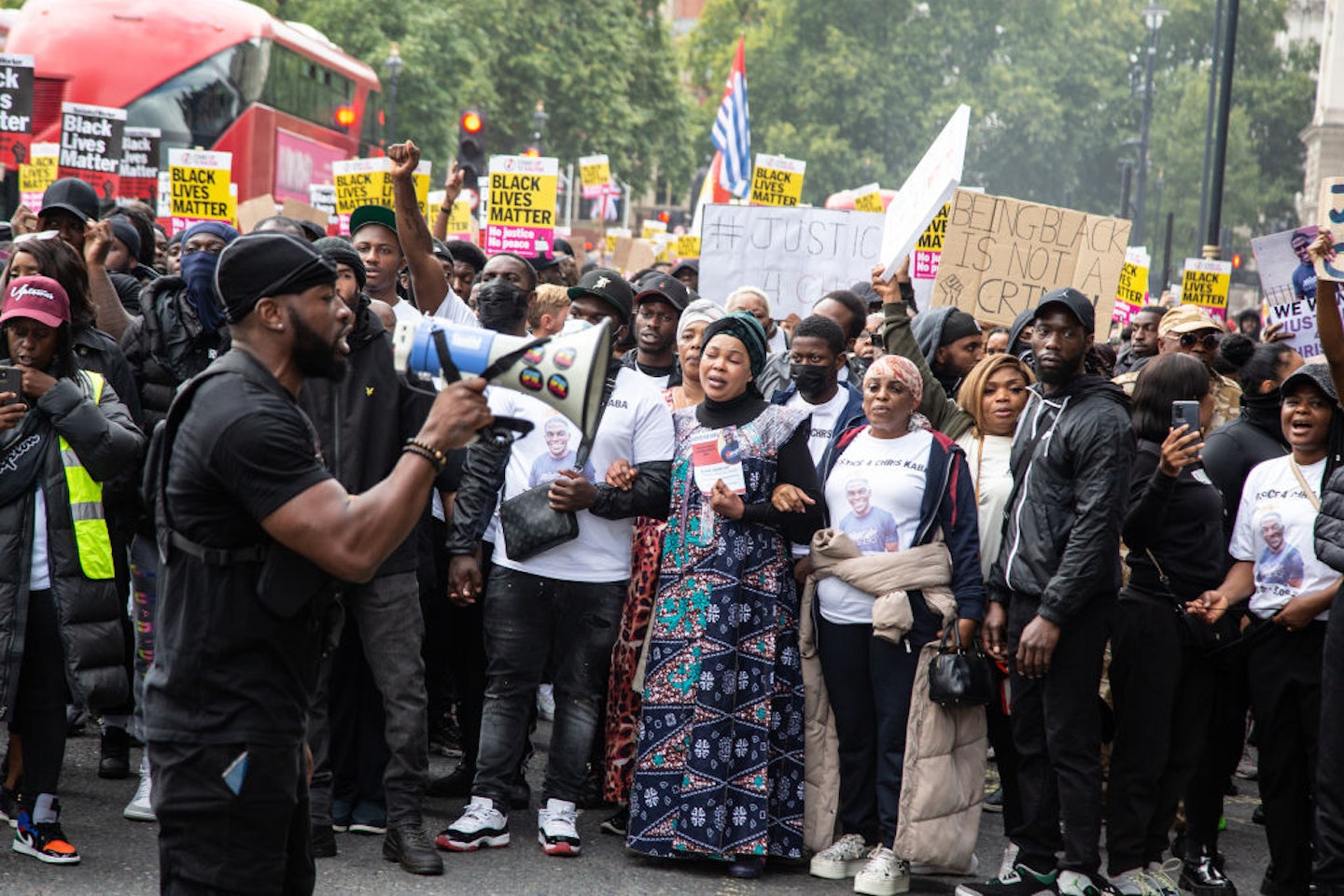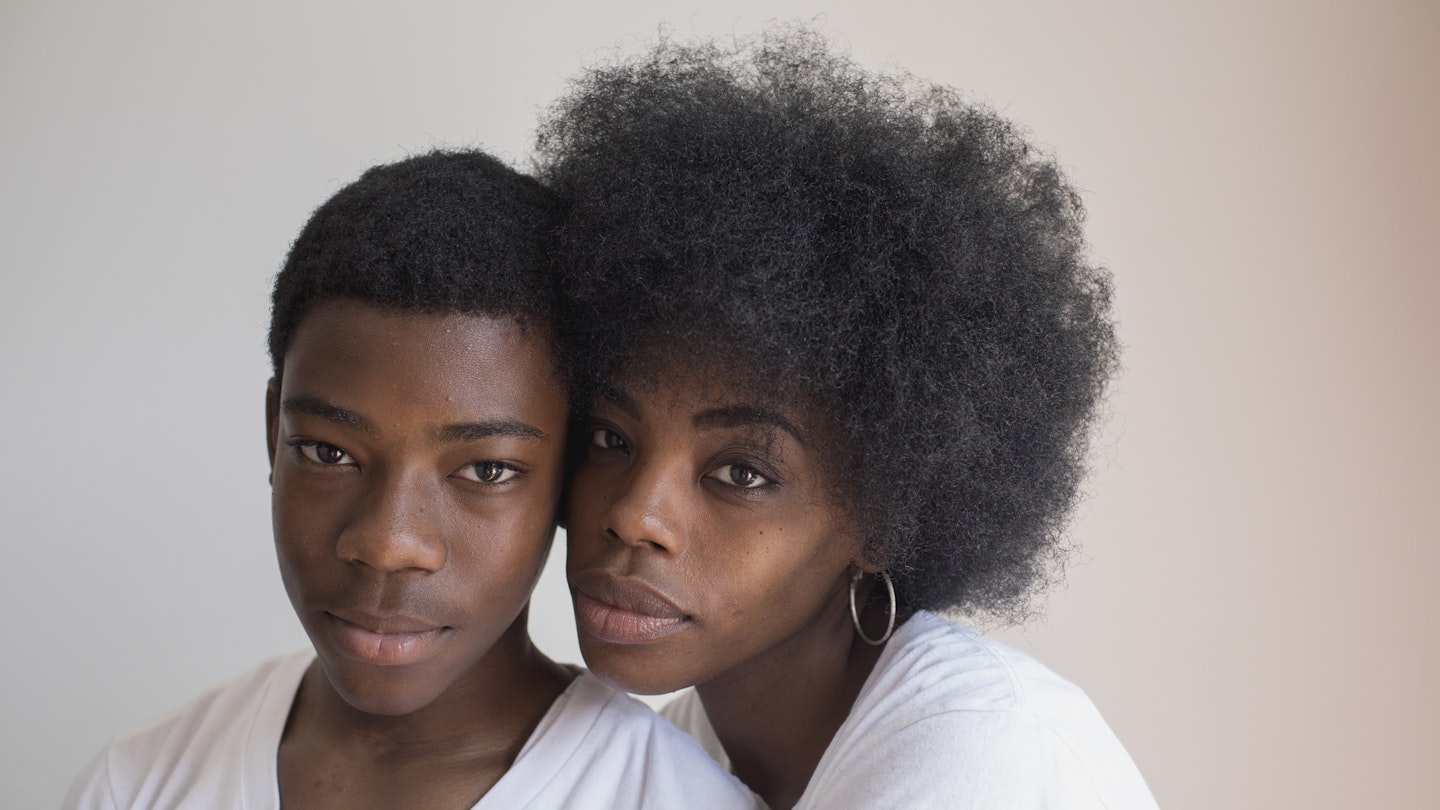‘I tell my three boys all the time that the police are here to help look after you - but I know deep down that's not necessarily the truth.’
Nana-Adwoa Mbeutcha, 36, is of Ghanaian descent and lives in Bedfordshire. She is mother to an eight-year-old daughter, three boys aged seven, five and two - and is currently pregnant with her fourth son. She's also a co-founder of Black Mums Upfront - a platform that uplifts black mothers. Before Nana-Adwoa had her son, she thought of parenthood as simply raising children. It wasn't until she had her first boy that she truly realised the harsh reality of raising a Black son in the UK. 'I tell my sons if you've done something wrong only then should you be fearful of the police. But if you haven't, then there is nothing to be afraid of.’ She pauses. ‘But as I'm saying it - I'm not believing it myself.’
On the 5 September 2022, Chris Kaba, 24, was fatally shot by a police officer whilst driving home in Streatham. The shocking news instantly ignited a wave of frustration and protesters took to the street in their thousands, demanding justice outside Scotland Yard. The Independent Office for Police Conduct revealed that Chris was unarmed and despite previous reports of a police chase, the inquest found no lights or sirens were put on during the police pursuit. The inquest also heard that the officer who was previously suspended from duty, has now been notified that they are under criminal investigation for the offence of murder.
Watching Chris’ mother, Helen Lumuanganu, weep on BBC News was harrowing and only echoed similar distressing moments we have seen time and time again. At a recent community event honouring her son she told the crowd, ‘Every time I see the police outside, I’m scared to be in front of them because of what they did to Chris.’

Mothers who are raising Black sons carry this unspoken fear everyday knowing that systemic racism in the UK prevails - and their children are not safe from that. ‘There is this constant feeling of fear for my child,’ says 56-year-old Marion Francis from London, who has a 22-year-old son. ‘Will he be stopped and searched or questioned by the police today for just simply existing? Will he come home tonight?’
For Marion, watching the news about Chris Kaba unfold only heightened her own fears. 'I was very upset that they shot an unarmed man. This isn’t the first instance either - who could forget Mark Duggan? The killing of Chris Kaba frightened me because it made me worry about what could happen to my son.’
'Seeing that news shook me, I don't know what I can do to protect my boys,' says Nana Adwoa. 'The other day my husband started throwing out statistics about negative things that happen to Black boys and men on UK soil. I can't remember all the stats, but he was basically saying, "So given that we're going to have four boys soon, according to the stats at least one of them could end up dead."'
Recently, chilling revelations were released in a reportabout Ian Taylor’s deathat the hands of the police. Ian Taylor, 54, was a severe asthmatic who was handcuffed after getting into a fight in 2019. He warned police that he was dying – and a few hours later he did, from a heart and asthma attack, dehydration and situational stress.
The report states that at the time Taylor lay dying, the arresting officer was heard on the radio telling his sergeant, 'He’s currently on the floor playing the whole poor me poor me; he’s going to have to go to hospital though as a matter of course...He’s saying he has chest pains he can't breathe blah blah; it’s a load of nonsense but there we go.'
The inquest concluded that the IOPC must investigate the fitness of the officer not only due to his 'conduct at the scene, but the evidence of his attitude'. And yet, he has not been suspended. The cycle continues.
Boys are so precious. We tend to think of girls as being the delicate ones. We feel this inate need to look after them and cuddle them - but boys need that as well.
Nana-Adwoa
Marion talks about the shift her son went through going from a Black boy to a man. 'I remember a conversation I had with him when he was about 15-years-old where he started to question a change in behaviour towards him. As he started to go through puberty, he noticed people would clutch their bags a little tighter or cross the roads a little faster than normal when he approached. That shift from being seen by the world as an innocent boy to a threat is very fast and often difficult to explain.'
With her partner, they spoke to their son when he was 13-years-old about stop and search. ‘My son has been stopped by the police countless times, starting from 14-years-old,' Marion says. 'He's tall, built and Black... to the police that just equals suspect.'
For many Black British parents, particularly those with sons, that’s a conversation that has to be had before a child even hits double digits. It’s been proven that Black men are disproportionately targeted by the police compared to other races. In 2021, there were 7.5 stop and searches for every 1,000-white people, compared with 52.6 for every 1,000 black people. Furthermore, despite making up just 3% of the population, Black people accounted for 8% of the deaths in police custody in the UK, according to figures compiled by the BBC.
‘My partner told our son to think of encounters with the police like a game of chess,' Marion explains. 'Your job is to checkmate the police, whilst their job is to checkmate you. There have been officers that have deliberately tried to wind him up so things escalate and could lead to him being arrested - that's how they checkmate you. But we have always told him to remain polite and calm in these situations no matter what is said. That’s when you’re able to walk away freely – and checkmate them.’

For Nana-Adwoa, knowing how systematic racism could affect her children from a young age meant she made the decision to home school them. ‘The more I learned about UK school system in this country and the way Black boys are perceived and stereotyped, there was no way I was sending my boys to school at an early age.’
‘It’s a cycle we as Black mothers know all too well,' she continues. 'Black boys start school at the age of three - they’re very bright, enthusiastic and energetic. However, by the time they've got to the end of primary school problems have arisen and they are already assumed by teachers to be the problem. Then when they then go into secondary school, they're already fed up with how they've been treated, and it just continues from there.’
She has also heard from the source: teachers within the system. ‘Retired white teachers have validated this cycle and said, “Yes, you are right that is what happens to Black boys, unfortunately, when they enter the education system." So, why would I put my boys into that environment?'
While Nana-Adwoa says she will eventually send her son to public school, she feels better doing so after letting him grow up in a loving, supportive environment in his formative years. She will then send him with the hope that he will be confident in his character and won’t internalise the stereotypes.
My sons know what racisim is. But because they are the subject of that discrimination, especially when they are young, you have to be careful how you frame it.
Nana-Adwoa
But what about the experiences of racism outside of the capital? ‘We moved out of London to Bedfordshire four years ago and I haven't experienced much racism. However, my husband has experienced more racism being a Black man,' says Nana-Adwoa. 'He used to tell me some of the stuff that people were saying when we moved here. I was gaslighting my husband saying, "I don't believe you; I live in the same place as you.”’
It wasn't until they encountered other Black men in the area who echoed the same story when she realised her error and apologised to her husband. 'He said to me, "The difference is, I'm a man. I'm perceived to be more of a threat, just for being big and Black. You're female, with little children hanging around you. The world just sees the kids and cuteness. As a Black man living here - I still feel it." ... He's got stories for days about the injustice that he received being a Black boy in school through to being a Black adult.'
A new damning review by Baroness Casey has exposed massive failings within the Met Police due to 'systemic racism and misogyny.' The new Police Commissioner, Mark Rowley, has recently said he would be ‘ruthless’ in tackling racism and misogyny among officers. He told LBC, ‘It’s about the decision-making that has a zero tolerance of people who misbehave rather than being forgiving of it. I think we have been too forgiving of it in the past.'
Black boys in the UK grow up patriotic - proudly sporting the England shirt. Then they realise an attitude shift towards them and the hostility starts. Soon they start to think I love this country - but my existence here is being questioned. Do I still love this country?
Kenny Harry, Being Invisible: Men of Colour Talk About Love, Life, and Fatherhood.
Imaryn Ayton, activist and motivational speaker who rose to prominence after organising and becoming a vital voice at the Black Lives Matter protests in 2020, believes the Met Police have a lot of work to do to rebuild relationships. 'Black communities have increasingly lost confidence in the Met Police,' she says. 'Disproportionate stop and search coupled with the continued over-policing of black people only adds fuel to the raging fires of discontent, which have burnt for at least the last 50 years.'
'Lord Scarman highlighted the toxic nature of the Met, McPherson further emphasised their racism in 1999,' she continues. 'Yet, in spite of these dire warnings, decades later we continue to witness the depth of their institutionalised racism from the Nicole Smallman and Bibaa Henry case to the damning WhatsApp group chats.'
But she does have ideas on how to build that trust. First, she wants an up to date judge-led independent institutionalised racism audit, which focusses on their practices, policies, procedures and how these effect the black community. Then, a zero tolerance approach to all and any form of racism (overt, covert and Institutionalised) which means taking firm action against those who have committed racism in the past. According to Open Democracy 90% of Met officers disciplined for racism still work for the force. Finally, she urges the Met to implement all recommendations from the Race Action plan 2022.
Could those actions inspire hope for parents raising Black sons in the UK? The sad truth is, few are optimistic. 'I've seen the protests time and time again, generational through generation, but I'm not sure anything will ever really change.'
